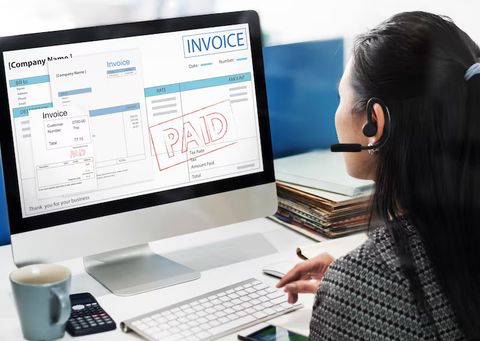This type of software exists to simplify and automate bookkeeping for e-commerce businesses, whether they sell through platforms like Amazon, Shopify, Etsy, or their own online stores. It brings together financial data from multiple channels into one place, making it easier to manage day-to-day finances and long-term business growth.

Why Accounting Software Matters for E-Commerce Sellers Today
As online selling becomes increasingly competitive, proper financial management is more than just tracking income and expenses. It's about optimizing cash flow, understanding profit margins, and complying with tax rules across multiple jurisdictions.
Key reasons e-commerce accounting software is essential today include:
-
High volume of micro-transactions: E-commerce involves thousands of small sales that can be hard to track manually.
-
Multichannel sales complexity: Sellers often manage orders from multiple platforms—each with different fee structures and payout schedules.
-
Tax compliance: With changing tax regulations, sellers need tools that support GST, VAT, or sales tax filings depending on their region.
-
ROI tracking: Sellers must understand their return on investment (ROI) from advertising, shipping, and operational costs.
This software benefits solo entrepreneurs, small to medium online businesses, dropshippers, and even global sellers who need real-time insights into their financial performance.
Recent Updates in E-Commerce Accounting (2024–2025)
The accounting software landscape has evolved significantly in the last year, with a focus on automation, artificial intelligence, and global compliance features:
| Update | Description | Year |
|---|---|---|
| AI-driven reconciliation | Tools like QuickBooks and Zoho Books now use AI to auto-match transactions and flag anomalies | 2025 |
| Integration with global marketplaces | Accounting platforms now support APIs for Etsy, eBay, Shopify, Amazon, and Flipkart | 2024 |
| Real-time sales tax compliance | Features for automatic calculation and filing of US sales tax and Indian GST have expanded | 2025 |
| Multi-currency reporting | Many tools now offer automated exchange rate conversions for international sellers | 2024 |
| Embedded analytics dashboards | Advanced dashboards show net profit, ROI, and advertising cost of sale (ACoS) from connected ad platforms | 2025 |
Rules and Regulations Impacting E-Commerce Accounting
E-commerce sellers must follow specific rules related to income reporting, tax collection, and compliance. These regulations vary by country and may also differ based on the size and structure of the business.
India
-
E-commerce operators and sellers must comply with GST laws, requiring monthly, quarterly, or annual filings.
-
TCS (Tax Collected at Source) is applicable for sellers using platforms like Amazon and Flipkart, where a small percentage is deducted before payout.
-
As per Section 194-O of the Income Tax Act, platforms must deduct 1% TDS on gross sales.
United States
-
Online sellers must register for sales tax permits in states where they have economic nexus.
-
Platforms like Amazon and eBay often handle tax collection, but sellers are still responsible for accurate reporting under IRS rules.
-
Form 1099-K must be issued for sellers who exceed certain transaction thresholds.
European Union
-
The VAT One-Stop-Shop (OSS) system simplifies tax reporting for sellers across multiple EU countries.
-
E-commerce sellers must maintain transparent and accurate records of cross-border sales and tax calculations.
Regulatory compliance is easier when software includes built-in support for these rules, reducing the risk of fines or audits.
Tools and Resources for E-Commerce Accounting
Choosing the right tools can significantly improve efficiency and reduce financial errors. Here are some top-rated platforms and resources:
Accounting Software Options
-
QuickBooks Commerce – Ideal for integrating accounting with inventory, supports multichannel syncing.
-
Zoho Books – Affordable and compliant with Indian GST, ideal for SMEs.
-
Xero – Cloud-based and popular among global e-commerce sellers for its ease of use.
-
TallyPrime – Traditional but GST-compliant software widely used in India.
-
A2X Accounting – Designed specifically for Amazon and Shopify sellers, automates transaction import and reconciliation.
Helpful Features to Look For
-
Marketplace integrations (Amazon, eBay, Flipkart, etc.)
-
Inventory and order tracking
-
GST/VAT support
-
Automated invoice generation
-
Payroll and expense management
Free or Low-Cost Tools
-
Google Sheets Templates – Useful for manual tracking of small operations.
-
ClearTax GST – Helps Indian sellers file GST returns easily.
-
Wave Accounting – Free tool suitable for very small e-commerce businesses or side hustlers.
Additional Resources
-
YouTube tutorials by accounting software providers
-
Webinars by government tax authorities on compliance
-
Facebook groups and seller communities for peer support and tool recommendations
Using these tools ensures better financial control and data-driven decision-making, especially as businesses scale.
Frequently Asked Questions (FAQs)
Q1: What is the best accounting software for small e-commerce businesses?
For small sellers, Zoho Books and Wave Accounting offer affordable, feature-rich options. Sellers on Amazon or Shopify may prefer A2X for its automation capabilities.
Q2: Can accounting software help with GST/VAT filings?
Yes. Many tools like TallyPrime, ClearTax, and Zoho Books provide built-in tax modules for automatic GST or VAT calculations and return filings.
Q3: Is it necessary to integrate my store with accounting software?
Integration is not mandatory, but it is highly recommended. It reduces manual data entry, improves accuracy, and saves time on reconciliation.
Q4: How do I calculate ROI using accounting software?
Most tools offer ROI dashboards that include revenue, cost of goods sold (COGS), advertising spend, and operational expenses. ROI can be tracked monthly, quarterly, or annually.
Q5: Are there free tools for accounting in e-commerce?
Yes. Wave Accounting is a good free option for basic needs. Google Sheets templates can also be used manually, although they require more effort and accuracy checks.
Final Thoughts
E-commerce accounting software is more than just a backend tool—it’s a foundational element for running a financially sound and scalable online business. From managing inventory to staying tax-compliant and tracking ROI, the right software can save hours of manual work and minimize financial risks.
In a fast-paced digital retail environment, automation, accuracy, and insight are key. Sellers should choose tools that align with their business size, sales platforms, and compliance needs. As regulations evolve and marketplaces expand, investing in robust accounting systems can provide long-term clarity and confidence.


